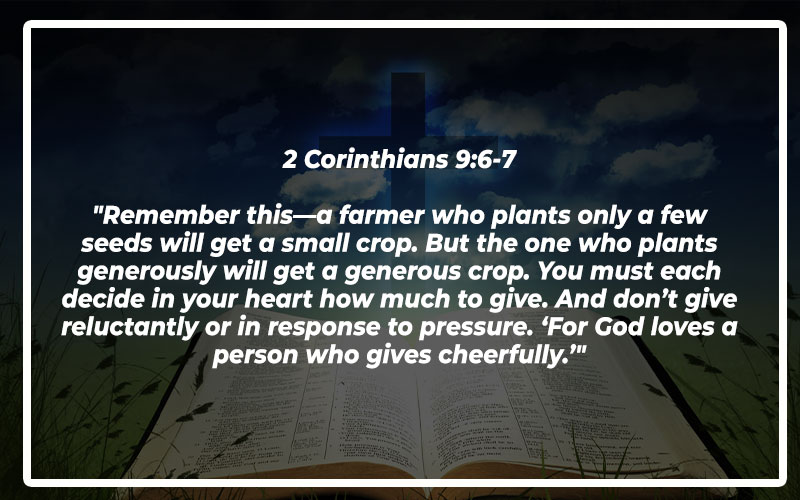Virtue is an essential quality that reflects moral excellence, righteousness, and goodness in the life of a Christian. The Bible speaks extensively on the importance of cultivating virtues such as kindness, humility, patience, and faithfulness. Below are seven key aspects of virtue with corresponding scripture that guide us on how to live a life of godly character.
Also Read: Bible Verses About Perfection
The Virtue of Patience
Patience is one of the foundational virtues for a Christian life, often mentioned as a fruit of the Spirit. It requires a heart willing to endure challenges and hardships without frustration. Patience isn’t passive but an active trust in God’s timing and sovereignty. The following Bible verses highlight the importance of this virtue in our daily walk with God.
Colossians 3:12
“Since God chose you to be the holy people he loves, you must clothe yourselves with tenderhearted mercy, kindness, humility, gentleness, and patience.”

This verse reminds us that patience, alongside kindness and humility, is a characteristic we must intentionally adopt as God’s chosen people. It reflects our love for others, as well as our trust in God’s perfect timing.
Romans 12:12
“Rejoice in our confident hope. Be patient in trouble, and keep on praying.”
Patience is an act of faith. This verse shows that in times of trouble, we must wait on the Lord, trusting His plans and remaining steadfast in prayer.
Proverbs 16:32
“Better to be patient than powerful; better to have self-control than to conquer a city.”
Proverbs teaches that patience is greater than power. It is better to have the discipline to wait and exercise self-control than to seek immediate gratification or authority.
James 5:8
“You, too, must be patient. Take courage, for the coming of the Lord is near.”
James encourages believers to be patient as they anticipate the return of Christ. Patience involves not only waiting but also maintaining courage and hope in the promises of God.
Galatians 6:9
“So let’s not get tired of doing what is good. At just the right time we will reap a harvest of blessing if we don’t give up.”
Galatians emphasizes that patience is key to persevering in doing good. In due season, God will reward those who remain faithful and do not give up.
The Virtue of Humility
Humility is the recognition that everything we are and have is a result of God’s grace. It requires putting others before ourselves and acknowledging our dependence on God. These verses emphasize the critical role humility plays in our relationship with God and others.
Philippians 2:3
“Don’t be selfish; don’t try to impress others. Be humble, thinking of others as better than yourselves.”
Paul’s call to humility challenges us to reject selfish ambition and embrace a Christ-like attitude, putting others before ourselves in every situation.
1 Peter 5:6
“So humble yourselves under the mighty power of God, and at the right time he will lift you up in honor.”
This verse reminds us that humility is not only an act of submission but also a way to receive God’s blessing. In His time, God rewards those who humbly trust in Him.
Proverbs 22:4
“True humility and fear of the Lord lead to riches, honor, and long life.”
Humility before God is linked to His favor. When we walk humbly with reverence for the Lord, we position ourselves for the blessings He has prepared.
James 4:10
“Humble yourselves before the Lord, and he will lift you up in honor.”
James reiterates the importance of lowering ourselves before God. In His time, God exalts those who are truly humble and reliant on His strength.
Isaiah 57:15
“The high and lofty one who lives in eternity, the Holy One, says this: ‘I live in the high and holy place with those whose spirits are contrite and humble. I restore the crushed spirit of the humble and revive the courage of those with repentant hearts.'”
Isaiah assures that God dwells with the humble. His presence is close to those who have a broken and contrite spirit, offering restoration and strength.
The Virtue of Kindness
Kindness is a reflection of God’s goodness toward us, and as believers, we are called to extend that same kindness to others. It is an outward expression of love that speaks louder than words. The following verses show how kindness is at the heart of Christian living.
Ephesians 4:32
“Instead, be kind to each other, tenderhearted, forgiving one another, just as God through Christ has forgiven you.”
Paul instructs us to show kindness, as it mirrors the grace and forgiveness we have received from God through Christ. Our kindness reflects God’s heart toward humanity.
Colossians 3:12
“Since God chose you to be the holy people he loves, you must clothe yourselves with tenderhearted mercy, kindness, humility, gentleness, and patience.”
This verse underscores that kindness is a garment we must wear as followers of Christ. It is part of living in a manner worthy of God’s calling.
Proverbs 11:17
“Your kindness will reward you, but your cruelty will destroy you.”
Proverbs emphasizes that kindness has its own reward, while cruelty and harshness lead to ruin. Acts of kindness bring blessings into our lives.
Luke 6:35
“Love your enemies! Do good to them. Lend to them without expecting to be repaid. Then your reward from heaven will be very great, and you will truly be acting as children of the Most High, for he is kind to those who are unthankful and wicked.”
Jesus calls us to a radical form of kindness that extends even to our enemies. God’s kindness is not conditional, and we are to reflect His generosity toward all people.
Proverbs 31:26
“When she speaks, her words are wise, and she gives instructions with kindness.”
Proverbs describes the virtuous woman, whose wisdom is intertwined with kindness. Our words and actions should always be marked by kindness, even when giving guidance.
Also Read: Bible Verses About Finishing Strong
The Virtue of Faithfulness
Faithfulness is a reflection of God’s unwavering commitment to His people. To be faithful means to be dependable, trustworthy, and loyal. The Bible encourages us to remain faithful to God and to the calling He has placed on our lives, knowing that our labor is not in vain.
Psalm 37:3
“Trust in the Lord and do good. Then you will live safely in the land and prosper.”
This verse highlights the connection between faithfulness to God and His provision. When we trust and remain faithful to His commands, we experience His peace and prosperity.
Matthew 25:21
“The master was full of praise. ‘Well done, my good and faithful servant. You have been faithful in handling this small amount, so now I will give you many more responsibilities. Let’s celebrate together!’”
Jesus emphasizes the importance of faithfulness in even the small things. Our dedication and reliability, no matter how insignificant it seems, will be rewarded by God.
Proverbs 28:20
“The trustworthy person will get a rich reward, but a person who wants quick riches will get into trouble.”
This verse contrasts the reward of faithfulness with the downfall of those seeking shortcuts to success. Faithfulness is a long-term investment with divine rewards.
1 Corinthians 4:2
“Now, a person who is put in charge as a manager must be faithful.”
Paul’s statement about faithfulness is a reminder that as stewards of God’s gifts and responsibilities, we must be trustworthy and diligent in our service.
Hebrews 10:23
“Let us hold tightly without wavering to the hope we affirm, for God can be trusted to keep his promise.”
The writer of Hebrews encourages us to remain faithful because of God’s own faithfulness. We can trust God to fulfill His promises as we stand firm in our faith.
The Virtue of Self-Control
Self-control is a vital virtue that helps us resist temptation and maintain integrity in our actions. It requires discipline and reliance on the Holy Spirit. These verses emphasize the importance of exercising self-control in every area of life as a mark of spiritual maturity.
2 Timothy 1:7
“For God has not given us a spirit of fear and timidity, but of power, love, and self-discipline.”
This verse encourages us that self-control is part of the Spirit’s work within us. It is not something we produce by our own efforts but through God’s empowerment.
Proverbs 25:28
“A person without self-control is like a city with broken-down walls.”
Without self-control, we are vulnerable to all kinds of destructive influences. This proverb highlights the importance of guarding our hearts and actions with discipline.
Galatians 5:22-23
“But the Holy Spirit produces this kind of fruit in our lives: love, joy, peace, patience, kindness, goodness, faithfulness, gentleness, and self-control. There is no law against these things!”
Self-control is listed among the fruits of the Spirit, showing that it is a direct result of a life yielded to the Holy Spirit. It aligns our desires with God’s will.
Titus 2:11-12
“For the grace of God has been revealed, bringing salvation to all people. And we are instructed to turn from godless living and sinful pleasures. We should live in this evil world with wisdom, righteousness, and devotion to God.”
Paul exhorts believers to live self-controlled lives as a testimony of God’s grace. In a world filled with temptations, self-control distinguishes us as devoted followers of Christ.
1 Corinthians 9:25
“All athletes are disciplined in their training. They do it to win a prize that will fade away, but we do it for an eternal prize.”
Paul compares the Christian life to an athlete’s disciplined training, where self-control is key to achieving the ultimate goal—eternal life with Christ.
The Virtue of Generosity
Generosity is a reflection of God’s abundant grace toward us. It involves giving freely and joyfully to others, not out of obligation but out of love. The Bible teaches that a generous heart blesses others and brings blessings in return.
2 Corinthians 9:6-7
“Remember this—a farmer who plants only a few seeds will get a small crop. But the one who plants generously will get a generous crop. You must each decide in your heart how much to give. And don’t give reluctantly or in response to pressure. ‘For God loves a person who gives cheerfully.’”

Paul encourages believers to give cheerfully and generously, trusting that God will reward them in abundance. Generosity comes from the heart, not from external compulsion.
Proverbs 11:24-25
“Give freely and become more wealthy; be stingy and lose everything. The generous will prosper; those who refresh others will themselves be refreshed.”
Generosity is a principle of God’s kingdom. As we freely give, we align ourselves with God’s nature, and in turn, He refreshes and prospers us.
Luke 6:38
“Give, and you will receive. Your gift will return to you in full—pressed down, shaken together to make room for more, running over, and poured into your lap. The amount you give will determine the amount you get back.”
Jesus teaches that the measure of our generosity directly influences the blessings we receive. God rewards those who give abundantly with more than they can imagine.
Proverbs 19:17
“If you help the poor, you are lending to the Lord—and he will repay you!”
Generosity toward the poor is an act of faithfulness to God. When we give to those in need, we are in essence giving to the Lord, who promises to repay us for our kindness.
Acts 20:35
“And I have been a constant example of how you can help those in need by working hard. You should remember the words of the Lord Jesus: ‘It is more blessed to give than to receive.’”
Jesus’ words remind us that the true blessing is found in giving, not in receiving. Generosity enriches our lives by allowing us to reflect God’s giving nature.
The Virtue of Forgiveness
Forgiveness is one of the most profound virtues that reflects God’s grace. As Christians, we are called to forgive others as we have been forgiven by Christ. These verses teach us the power of forgiveness in healing relationships and maintaining unity within the body of Christ.
Matthew 6:14-15
“If you forgive those who sin against you, your heavenly Father will forgive you. But if you refuse to forgive others, your Father will not forgive your sins.”
Jesus makes it clear that forgiveness is not optional for believers. Our willingness to forgive others opens the door for God’s forgiveness in our own lives.
Ephesians 4:31-32
“Get rid of all bitterness, rage, anger, harsh words, and slander, as well as all types of evil behavior. Instead, be kind to each other, tenderhearted, forgiving one another, just as God through Christ has forgiven you.”
Forgiveness flows from a tender heart. Just as Christ has forgiven us without holding a grudge, we must extend the same grace to others, letting go of bitterness and anger.
Colossians 3:13
“Make allowance for each other’s faults, and forgive anyone who offends you. Remember, the Lord forgave you, so you must forgive others.”
Forgiveness involves making room for others’ imperfections. When we remember the depth of God’s forgiveness toward us, we are empowered to forgive those who have wronged us.
Matthew 18:21-22
“Then Peter came to him and asked, ‘Lord, how often should I forgive someone who sins against me? Seven times?’ ‘No, not seven times,’ Jesus replied, ‘but seventy times seven!’”
Jesus’ response to Peter emphasizes the limitless nature of forgiveness. We are to forgive endlessly, reflecting the boundless forgiveness God has shown us through Christ.
Luke 23:34
“Jesus said, ‘Father, forgive them, for they don’t know what they are doing.’ And the soldiers gambled for his clothes by throwing dice.”
Even on the cross, Jesus exemplified forgiveness. His prayer for those who crucified Him reveals the depth of His mercy and calls us to forgive even in the most unjust situations.
Also Read: Bible Verses About Resilience
What Does the Bible Say About Virtue
Virtue is a word that means living in a good and moral way. In simple terms, it is about doing what is right and avoiding what is wrong. The Bible teaches that virtues are qualities that come from God and should be part of every Christian’s life.
To begin with, being virtuous means living in a way that pleases God. This includes being kind, honest, patient, and loving. These are not just good habits; they reflect the character of God. When we live with virtue, we show others what God is like, and we become a light in the world. Virtue helps us to make decisions that honor God and care for others.
Another important part of virtue is self-control. The Bible often encourages believers to control their desires and not to give in to harmful behaviors. This can be hard because we all face temptations, but with God’s help, we can choose to do what is right. Self-control protects us from making choices that we might regret later. It helps us to stay focused on living a life that pleases God.
Humility is also a key virtue in the Bible. Being humble means not thinking too highly of ourselves but putting others first. It is about serving others rather than seeking our own way. The Bible shows that humility leads to peace and harmony in relationships because it helps us to listen to others and work together.
Forgiveness is another important virtue. The Bible teaches that just as God forgives us, we should forgive others. This is not always easy, but it brings healing and peace. When we forgive, we let go of anger and bitterness, and we create space for love to grow.
Finally, love is the highest virtue. The Bible says that love is the foundation of all other virtues. Love means caring for others, helping those in need, and being compassionate. When we live in love, we reflect God’s greatest gift to us.
In conclusion, the Bible encourages us to live with virtue by being loving, humble, self-controlled, and forgiving. These virtues help us grow in our faith and shine God’s light to others. By living a virtuous life, we honor God and show His goodness to the world.

